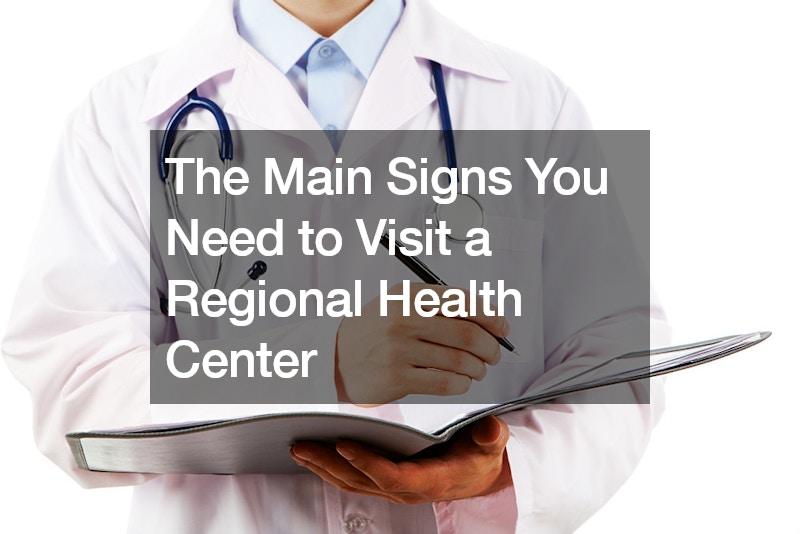The Main Signs You Need to Visit a Regional Health Center
When it comes to our health, timely medical intervention can be the difference between recovery and a significantly worse outcome. Understanding when to seek help from a regional health center is crucial. A regional health system not only provides general medical services but also specializes in managing acute medical conditions that require immediate attention. Knowing the main signs that necessitate a visit can help you make informed decisions about your health and safety.
Trouble Breathing
If you find yourself suddenly struggling to breathe, experiencing wheezing, or feeling an unexplained shortness of breath, it is a significant warning sign that should not be ignored. These symptoms can indicate serious conditions such as heart attacks, lung blood clots, asthma complications, or other critical respiratory issues. A regional health system is equipped with the necessary tools and specialists to diagnose and treat these urgent health problems effectively, ensuring you receive the best possible care in critical times.
Chest Pain
Chest pain that persists and does not subside with rest or after taking medication is another red flag that requires immediate medical attention. Such pain, particularly when accompanied by other symptoms like nausea, cold sweats, or lightheadedness, can be indicative of life-threatening heart conditions, including heart attacks or aortic dissection. Prompt evaluation and treatment at a regional health center can be lifesaving, providing necessary interventions in a timely manner.
Fractures
Experiencing a visible deformity after an injury, or suspecting a fracture, necessitates a visit to a medical facility. Whether it’s a closed fracture where the skin remains intact, or an open fracture where the bone has pierced the skin, professional medical assessment is crucial. Regional health centers can offer immediate x-rays, possibly followed by surgery or other required treatments to properly manage and heal fractures, preventing further complications like nerve damage or infection.
Sudden Numbness or Weakness
Numbness or weakness, especially when occurring suddenly or on one side of the body, can be alarming. These symptoms often suggest neurological issues, such as a stroke, and require urgent medical attention. A regional health system is typically well-prepared with neurology specialists and the necessary imaging technologies to quickly assess and treat such conditions, potentially preventing long-term disability.
Acute Symptoms
Any sudden, severe symptoms like intense headaches, seizures, or an unexplained inability to speak or move should prompt an immediate visit to a regional health center. Such symptoms could signify serious underlying conditions, including severe infections, neurological disorders, or major cardiac events. Quick action and access to specialized care can significantly influence the outcome in such emergencies.
Maternity Care
Maternity care is another critical service offered by regional health systems, designed to support mothers throughout their pregnancy journey, during childbirth, and in postnatal care. Efficient and accessible maternity services are vital for ensuring the health and well-being of both mother and child. Regular check-ups, ultrasound scans, labor and delivery services, and postpartum support are all components of comprehensive maternity care. A regional health center equipped with a dedicated maternity ward ensures that expectant mothers receive continuous, specialized care tailored to their unique health needs. Additionally, in cases of complications or high-risk pregnancies, having immediate access to specialized care like neonatal intensive care units (NICU) and obstetric physicians can make a significant difference in outcomes.
Moreover, regional health systems often play a pivotal role in community health by offering educational programs and preventive care services. These programs aim to improve overall health literacy and encourage proactive health management among community members. By participating in health screenings, vaccination drives, and health education sessions, individuals can significantly reduce their risk of severe health issues. In this way, regional health centers not only treat acute conditions but also contribute to the long-term health and vitality of the communities they serve.
Recognizing the signs that require a visit to a regional health center can help individuals take prompt action in emergencies. Whether it’s dealing with acute medical symptoms, managing a pregnancy, or treating injuries, regional health systems play an essential role in maintaining the health of the community. By understanding these signs and responding quickly, you can ensure that you and your loved ones receive the necessary care without delay.
Always remember that in the case of any medical uncertainty, the safest decision is to consult with a healthcare professional or visit a regional health center. Early intervention is often key in preventing more severe health issues later on. Finding the right medical centre for your care needs is also essential is getting healthier. Find a center that speciliazes in your illness or injury to get better sooner. This is going to be your best option for recovery!
.


